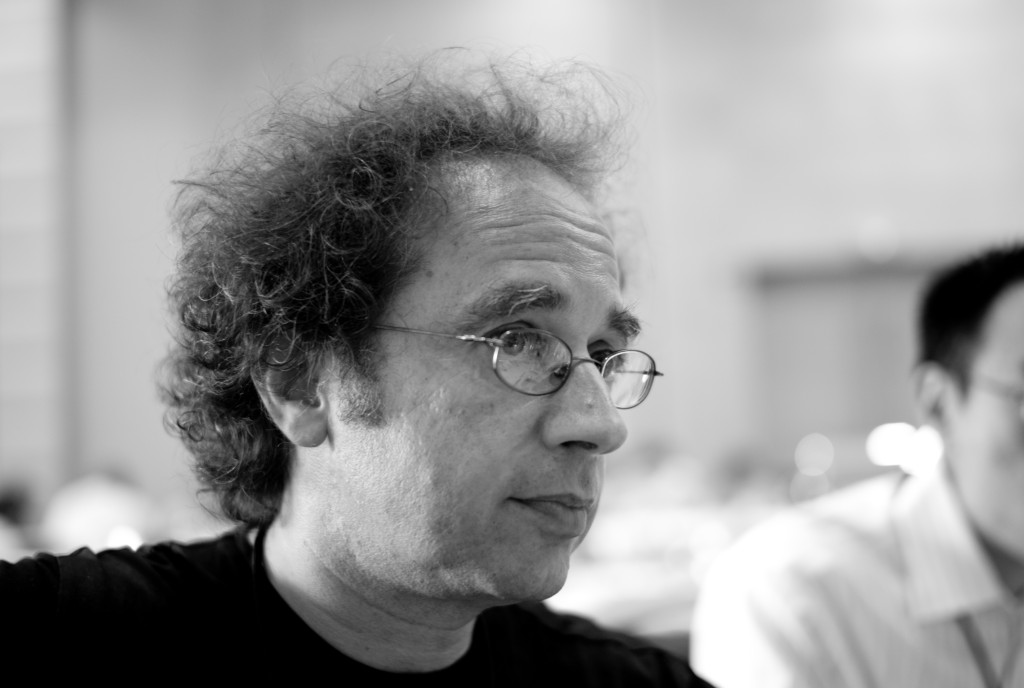
Knowing that the program would contain a collage of sounds and poetry collected and collaged by Tod Machover, creative director at MIT’s Media Lab, I assumed Philadelphia Voices would be a cute, little, piece of popular music with trite songs about cheesesteaks. It was neither trite nor trivial. Machover created some serious music and selected some very striking poetry by Philadelphians. My favorite verses came from the pen of a brilliant teenager named Jayda Hepburn. Hepburn, a Mighty Writer, wrote some lines that resonate:
“The City of Brotherly Love rests on the river/And we all await the next morning/Waiting to love again.” Another verse by Ms. Hepburn stayed with me: “The country is full of black people/And pain and blood and gunsmoke/And anger and a mother’s tears/And screaming/And us black people scream back/And pray for the night to end/For mom to dry her tears/And for someone to fucking listen.”
The uncensored verses were deftly incorporated into a surprisingly classical score, undergirded by a strong organ part which provided both musical support and, in other sections, a musical backdrop of sports arena music and dancing block parties. Machover used rhythms to great effect: a series of 5/8 measures for “Philadelphia” and some 7/8 for “Benjamin Franklin” which the Keystone State Boychoir and Pennsylvania Girlchoir sang with crisp and controlled intonation.
There was, surprisingly, more of a pop vibe to the Bernstein Chichester Psalms with those sneaky augmented fourths which tease the listener into anticipating “Maria” from West Side Story. With Yannick Nézet-Séguin at the podium, the popness was ironed into a serious reading of the Psalms. On Thursday, the pure and focused voice of boy soprano Dante Michael DiMaio sailed quietly over the strings and brass in the 23rd Psalm (sung in Hebrew). Master DiMaio’s pitch was stunning, especially in the very tricky blue note passages where he had to find extremely high descending and ascending half-steps which he negotiated with the surefootedness of a mountain goat. The Westminster Choir was beautifully prepared and they were able to sing so softly that even the quietest notes from the soloist could be heard. The quartet of soloists was quite good, with a soprano whose voice flew to the highest notes so easily I could have listened to her all night.
What better piece to crown this lively first half but the Maurice Ravel orchestration of Modest Mussorgsky’s Pictures from an Exhibition? The brass section outdid themselves in beautifully full and resounding chords. David Bilger’s astounding trumpet solos, incredible clarinet (Ricardo Morales) and bassoon (Daniel Matsukawa), and great saxophone playing by Samuel Caviezel put polish on a performance of a piece that is so familiar it, too, can be glossed over superficially. The Philadelphia Orchestra and Maestro Nézet-Séguin brought out all the delicate nuances that Maurice Ravel’s orchestration brought to this masterwork by Modest Musorgsky.
[Philadelphia Orchestra at Verizon Hall, Kimmel Center, 300 S. Broad Street] April 5-7, 2018, kimmelcenter.org
